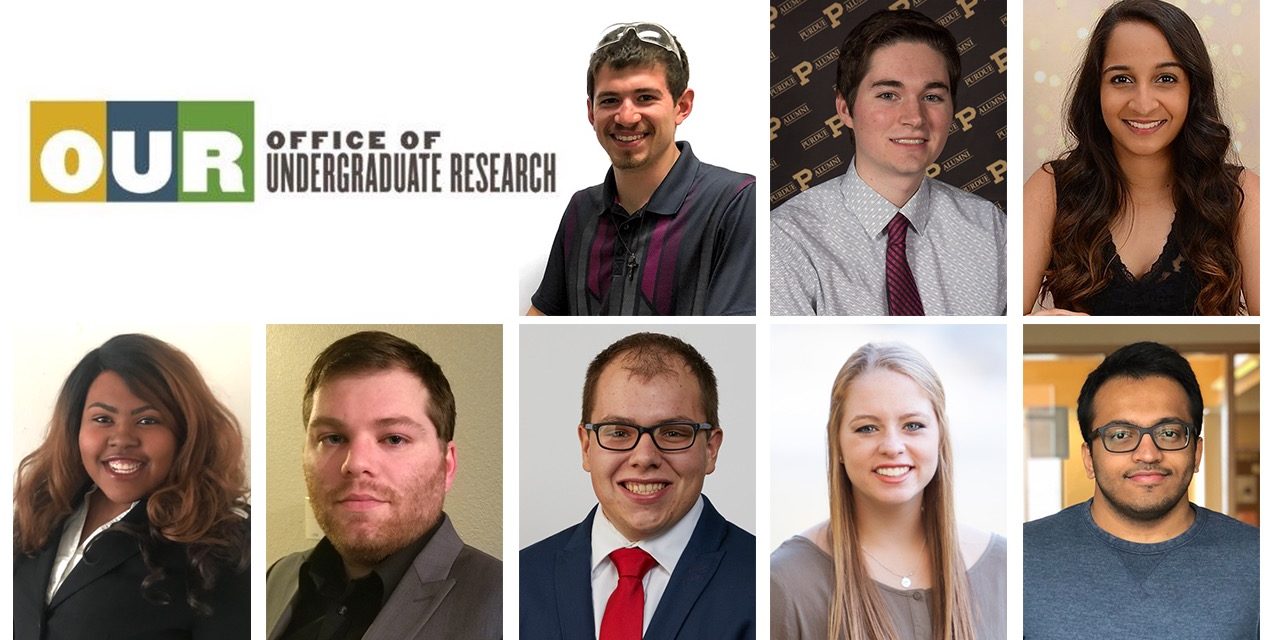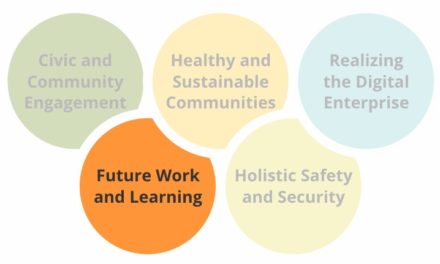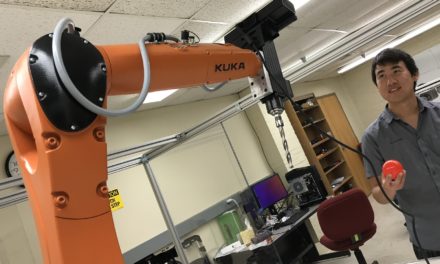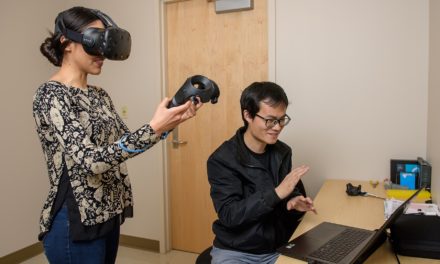First published: March 30, 2018
URL to original article: https://polytechnic.purdue.edu/newsroom/office-of-undergraduate-research-awards-12-research-scholarships-polytechnic-students
In partnership with Purdue’s Office of Undergraduate Research, Purdue Polytechnic awarded 12 scholarships to undergraduate students to recognize their engagement in original research, scholarship, or creative work under the guidance of faculty mentors. Scholarship recipients received $500, disbursed through the Division of Financial Aid, and their mentors received matching project funds.
We talked with many of the Polytechnic scholarship recipients to learn about their projects.
Monique Barnes
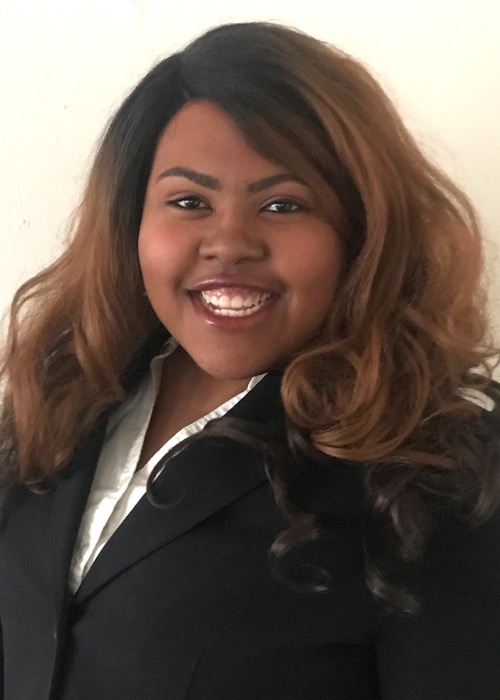 Major: Building Information Modeling and Virtual Product Integration (Department of Computer Graphics Technology)
Major: Building Information Modeling and Virtual Product Integration (Department of Computer Graphics Technology)- Graduation Date: May 2018
- Project Title: “Application of Robotics in Construction Education”
- Mentor: Kereshmeh Afsari, assistant professor of construction management technology and computer graphics technology
My research project aims to bridge the gap between robotics in education and robotics in construction. Robotics in education is known to be extremely helpful to students’ learning, while robotics in the construction industry has begun to gain popularity. Because of this, the need to merge robotics into construction education has become increasingly important for students in the construction field. I am researching the applications and tasks of collaborative robotics in education and construction, and I am then applying those tasks to a lightweight robotic arm. The result of this research will lead to the integration of robotics in future construction courses.
I enjoy learning new things, and doing this research project was the perfect opportunity for me to do so. I was also intrigued by the combination of robotics and construction education, and I wanted to see what impact I could make by doing research on these topics.
Marlee DeSplinter
-
 Major: Engineering Technology Teacher Education (Department of Technology Leadership & Innovation) with a minor in Global Studies
Major: Engineering Technology Teacher Education (Department of Technology Leadership & Innovation) with a minor in Global Studies - Graduation Date: May 2020
- Project Title: “Influencing Student Perceptions of STEM and STEM Careers through Literature”
- Mentor: Scott Bartholomew, assistant professor of technology leadership & innovation
My project gauges when elementary school children’s perceptions of the stereotypes of STEM begin, if they do so at all. Stereotypes are commonly associated with STEM; for example, boys are better at STEM than girls. We will give students a pre-test with questions like “I am good at math,” “Boys are good at engineering,” or “Girls are good at science,” and then read STEM books to children over the course of multiple weeks. After reading the books, we will give the students a post-test to see if their perceptions of the different STEM concepts have changed.
While growing up, I had the same stereotypes engrained into the back of my mind, like “boys were more fit for STEM than I was.” This motivated me to find out if elementary school kids felt the same way. If they do, I wanted to learn when those ideas become implanted in their heads. The goal of this project is to make both boys and girls realize that they are valuable and can do anything they set their minds to do.
Jackalyn Dodson
Major: Web Programming and Design (Department of Computer Graphics Technology)
Graduation Date: May 2018
Project Title: “A visual approach to physician-prescribed drug combination analysis”
Mentor: Vetria Byrd, assistant professor of computer graphics technology
Americans today are prescribed an increasing number of different prescription drugs, sometimes for multiple ailments, all of which have different side effects. Doctors are faced with decisions on which drugs to prescribe based on side effects and drug interactions, and they may have to change those depending on patient reactions to specific drugs. Having an interactive visualization or “picture” of the medication data helps with identifying patterns and links, especially between common side effects, and can help with decision-making in that field.
I was introduced to the fields of data visualization and data science after taking Dr. Byrd’s Introduction to Data Visualization class last semester. She reached out to me and encouraged me to apply to do undergraduate research in the Data Vis Lab. The students there are all contributing to lupus research in varied but supplemental ways, so what sparked my interest is that all of our work has a real-world impact. I didn’t have a medical background before starting this project, so it’s amazing to know that through technology, I’m still able to somehow connect with and work indirectly in that field and to start a project that can be continued in the future.
Madison Haller
Major: Mechanical Engineering Technology (School of Engineering Technology)
Graduation Date: May 2020
Project Title: “New Team Interaction and How It Affects Team Productivity”
Mentor: Anne Lucietto, assistant professor of mechanical engineering technology
This research project addresses questions such as “How do new teams begin interacting and how long does it take them to finish their first project?” and “How do these interactions affect disabled children and their families?” by spending time with each team member, noting how they interact with one another, and the projects that they are working on.
We recently formed a new club called Adapted Toys for Children (ATC). The goal of the club is to provide disabled children from the area with toys and games with which they can play, but with which they could not interact prior to working with our club. Our faculty mentor, Dr. Anne Lucietto, is interested in professional skills within teams. In new teams with members that never worked together, I wondered how members learned to understand each other and how their learning process affected the disabled children and their families.
Gowri Hassan
 Major: Cybersecurity (Department of Computer and Information Technology)
Major: Cybersecurity (Department of Computer and Information Technology)- Graduation Date: December 2018
- Project Title: “Examining Environmental Factors Influencing Phishing”
- Mentor: Ida Ngambeki, assistant professor of computer and information technology
I am studying how the environmental factors that people grew up with would affect their exposure, knowledge and recognition of social engineering attacks, especially regarding phishing. Phishing is the fraudulent method of making people reveal sensitive information such as passwords, usernames and bank account information, typically through email. For example, I will study how people’s home environments, their school curriculum and the area they come from affect how well they know, recognize and have been exposed to phishing attacks.
I got interested in this project because a few months ago, my friend, who also studies at Purdue, was lured into a scam that involved a fraud posing as an employer in the university in which he was enrolled over the summer. This individual sent an email to my friend’s university-assigned email address offering a job. Considering the individual’s “credentials,” it looked legitimate. The individual offered to write a check for $700 in return for buying office supplies for his company. He only realized that this was a scam once the check had bounced. This made me wonder whether this would have been prevented if he had better knowledge about phishing attacks. Did environmental factors like where my friend grew up affect his behavior in terms of being scammed by this attack?
Tyler McDonald
 Major: Mechanical Engineering Technology (School of Engineering Technology) with a minor in Product Lifecycle Management
Major: Mechanical Engineering Technology (School of Engineering Technology) with a minor in Product Lifecycle Management- Graduation Date: May 2018
- Project Title: “Pulsed Die Lube Spray”
- Mentor: Qingyou Han, professor of mechanical engineering technology
I am completing research on pulsed die lube spray and its effects on high-pressure die casting. The basic idea of my research was to find a way to change the current industry standard of continuous spray to a pulsed spray to increase efficiency of cooling rates on die molds. We have found that using small bursts of air between cycles can increase die life without compromising heat cycle wear on the face of the die. I am now researching different lube types to maximize overall efficiency when considering the amount of lube residue left between heat cycles. Combining the results of these two topics allows our research group to predict the most efficient overall setup for industry to create quality parts every time. With a significant reduction in die lube runoff, companies save large amounts of money and also reduce waste footprints.
I was interested in this project because of the changes it could potentially have on current industry standards. This project has allowed me to work with people in industry to help reduce the amount of wasted die lube and save companies money.
Kanishka Misra
-
 Major: Computer Information Technology (Department of Computer and Information Technology) with a minor in Statistics
Major: Computer Information Technology (Department of Computer and Information Technology) with a minor in Statistics - Graduation Date: May 2018
- Project Title: “Analysis of Online Predatory Texts”
- Mentor: Julia Rayz, associate professor of computer and information technology
This research revolves around understanding a dataset collected from conversations involving sexual predators who, by means of the internet, try to meet trustful youngsters for sexual purposes. My role here is to analyze this data by building a statistical model that gives a likelihood of the predator showing up physically to meet the potential victim. This can be then used as a mechanism to prioritize certain cases for law enforcement based on risk of a suspected predator showing up to meet a naive teenager.
Over the course of the last few semesters, I have enjoyed working with Dr. Kathryn Seigfried-Spellar and Dr. Julia Rayz, both professors in my department. In this project, I used concepts of Natural Language Processing (Dr. Rayz’ background) and applied it to the domain of Cyber Criminology (Dr. Kathryn Seigfried-Spellar’s background). Having the support of even one professor is a great motivator for many students and I have the support of two!
Kyle Schnetzler
-
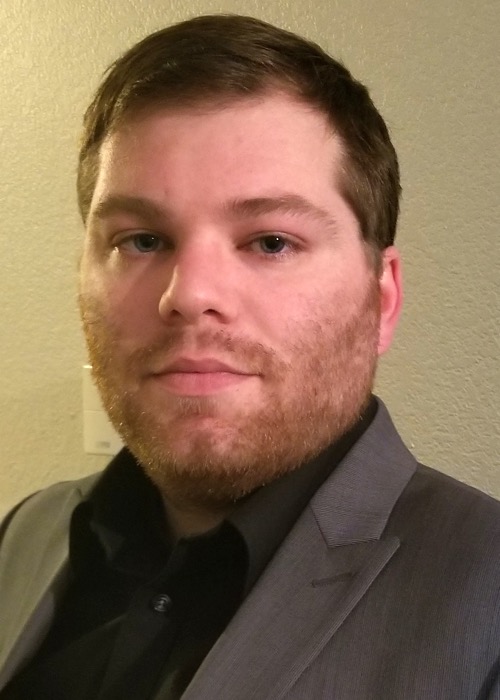 Major: Computer and Information Technology, with a focus in Cybersecurity (Department of Computer and Information Technology)
Major: Computer and Information Technology, with a focus in Cybersecurity (Department of Computer and Information Technology) - Graduation Date: May 2019
- Project Title: “Psychological Wellbeing and Job-Related Stress of Audio/Video Digital Forensic Examiners”
- Mentor: Kathryn Seigfried-Spellar, assistant professor of computer and information technology
Criminal investigations now involve at least one form of digital evidence. However, little research exists on the digital forensic examiners who are exposed to various criminal acts, over and over again, because their job requires them to listen, to watch, and enhance audio/video/image evidence of criminal activity that can be anything from crimes against children to school shootings. Further, we know little about the mental health services available to these professionals.
I started pursuing this research because I have a background in law enforcement — specifically being “boots on the ground” — but I never considered what it was like to be the examiner working these types of criminal cases. I learned about this field of research from cyber criminology. I was surprised we knew so little, and I wanted to learn more about how this type of evidence impacts our digital forensic examiners. I hope my research will make a difference and possibly lead to the creation and implementation of policies that not only prepare individuals for this field but also help the professionals currently in it.
Zachary Schreiber
 Major: Mechanical Engineering Technology (School of Engineering Technology)
Major: Mechanical Engineering Technology (School of Engineering Technology)- Graduation Date: May 2018
- Project Title: “Experimental Measurements of Gas Flow Released During Li-ion Battery Failures”
- Mentor: Jason Ostanek, assistant professor of engineering technology
When a lithium-ion battery experiences failure, heat and pressure build inside the cell. To prevent the battery case from exploding, a pressure relief valve is integrated into the battery cap. We are testing the battery caps of small lithium-ion batteries to determine the amount of pressure needed to open the relief valve within the cap as well as understand how fluid is vented.
I became interested in the project because I wanted to apply my knowledge and understanding of fluids and thermodynamics to better understand this failure as well as obtain research experience.
Ian Williams
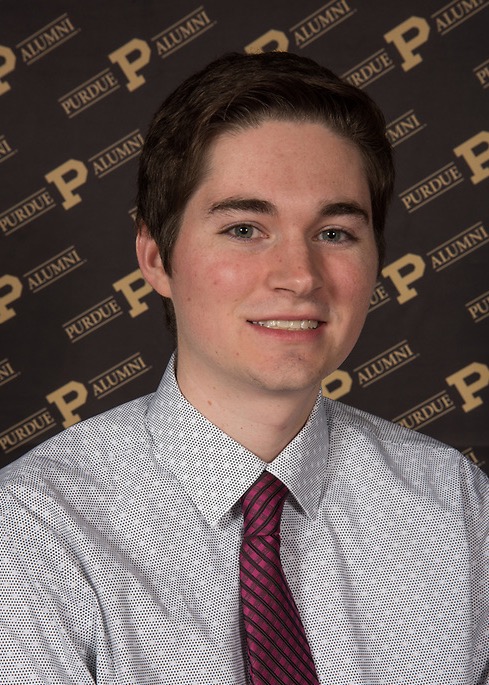 Major: Game Studies and Animation (Department of Computer Graphics Technology)
Major: Game Studies and Animation (Department of Computer Graphics Technology)- Graduation Date: May 2019
- Project Title: “Contributing Factors to the Opioid Abuse in Indiana Using Visual Analytics”
- Mentor: Vetria Byrd, assistant professor of computer graphics technology
As the opioid epidemic in Indiana continues to become more of a problem, uncovering solutions to the issue are crucial while also informing the public about the seriousness of the epidemic. Visual analytics tools and techniques will be used to study the data and extract useful information. Tableau software will be the initial visualization tool; however, D3 (data driven documents) will be used to develop a more interactive representation of the data.
I took CGT 270 (Intro to Data Visualization) and worked on a project related to opioids in Indiana and was interested in continuing my research. Dr. Byrd’s DataVis Lab provided the opportunity.
Additional information:
- About OUR scholars (Purdue Office of Undergraduate Research)

